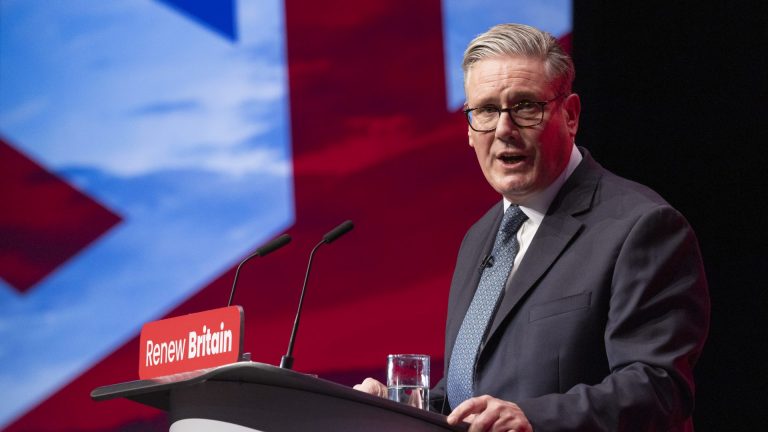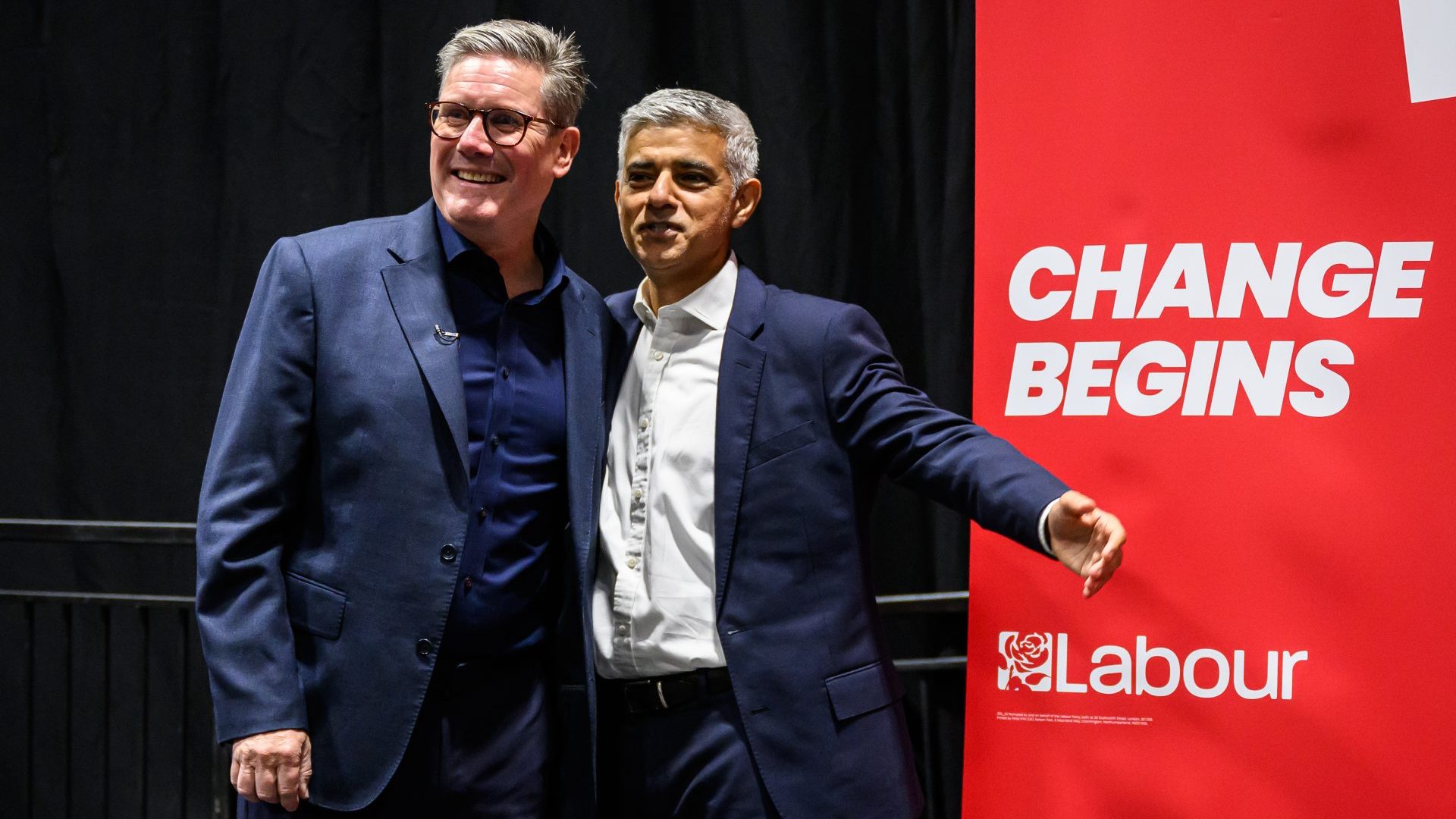When is a core voter not a core voter? Given Labour is in government, battling a dire fiscal inheritance and even worse polling numbers, you might think it had better things to do with its time than battle with philosophical questions such as this.
But throughout the Labour conference, and for months before it, there has been a running internal battle as to which kinds of voters Labour should be aiming to win, with different factions trying to find a catchy name for their philosophy.
Blue Labour, a small grouping of MPs with outsize media attention, believes Labour is doomed if it doesn’t appeal to socially conservative, older white voters – especially men. A larger grouping thinks Labour’s future relies on holding the red wall, a task reliant on appealing to squeezed families across the north and midlands.
Behind the scenes, though, what started a few months ago as quiet alarm is developing into full-blown panic in the region which might have the best claim to be Labour’s 21st century heartland – London. Labour took 59 of London’s 75 parliamentary seats in the 2024 general election, and controls 21 of its 32 borough councils.
The coalition of left-liberal middle class voters and often lower-income black and Asian voters has helped transform London into a must-win region for Labour, but one it has felt it holds so securely it can take it for granted – to the point that London has almost become an insult thrown around in the party.
Labour MPs will complain the party’s leadership is too “London centric”, that its policies favour London, or suggest it’s a problem for Labour that its electoral coalition – the one which carried it to a landslide victory just 15 months ago – includes these people. Labour’s backbenchers have spent a year sniping at London. Its frontbenchers have spent a year ignoring it.
And now, as next year’s local elections barrel into view, almost anyone you speak to in London Labour is in something close to panic – Labour’s almost deliberate alienation of voters abandoning it for the Lib Dems, Greens, or Your Party, coupled with policy decisions set to devastate London councils mean the party fears disaster in the capital. And whether it likes its dependency on London or not, Labour simply cannot lose London and stay in government.
Things were so different just over a year ago. In the run-up to the general election, both Keir Starmer and Sadiq Khan were ready to make big promises about what a Labour government and a Labour mayor of London could achieve if they worked together.
In a Guardian op-ed in May 2024, Keir Starmer rattled off a list of Sadiq Khan’s achievements before inviting the reader to wonder: “Sadiq has managed all of this in the teeth of a Tory government; just imagine what could be achieved working with a Labour one.” A few weeks later, Khan said much the same at a summit for mayors. “Labour has been delivering for Londoners,” he said. “But with the winds of a Labour government at our back, just imagine how much more we could achieve.”
From the vantage point of September 2025, the answer looks to be stark: nothing, or worse. Rachel Reeves announced a huge, multi-billion programme of investment – the payoff for her financial discipline elsewhere. Almost none of it has gone to London. The hoped-for Bakerloo line extension is indefinitely delayed.
Despite Crossrail (now known as the Elizabeth Line) proving wildly successful in its first year – surpassing all estimates of passenger numbers – hopes that a Labour government would finally greenlight Crossrail 2 have proved to be in vain. Starmer and Reeves have, in theory, made all of their major infrastructure announcements for this government, and almost none of them are heading London’s way.
The picture for London’s councils is radically worse. During their 14 years in government, the Conservatives reformed local government finances in such a way that devastated the finances of inner-city councils, typically led by Labour, while letting Tory-held shire councils off lightly.
If London’s councils were hoping for some kind of compensation for their decade of punishment – or at least for an end to the beatings – they have been bitterly disappointed. Labour has announced a mind-numbingly complex new “fair funding” formula for councils, which if implemented immediately would see inner London councils lose 30% of their grant funding in real terms.
This would represent tens of millions of pounds a year flowing out of the budgets of Labour-held councils at a time when their finances are already on the edge of crisis – meaning spending would fall even with the maximum council tax hikes allowable by law. Behind the scenes, Labour councillors talk grimly of the scale of cuts these would require.
Suggested Reading


Keir Starmer has finally found his bite
At conference, Labour councillors would complain bitterly that they spent a decade being “screwed over by Conservative governments” to find the only difference with Labour was that they were “screwed over by a more complex formula”.
Whether through indifference, incompetence, or a complacent sense that votes in London are guaranteed, the Labour government has made its position clear – despite promising Londoners they would get more if they voted Labour, they will instead get nothing. Councils are frenetically lobbying behind the scenes for a rethink, not least because, after housing costs, poverty is worse in London than anywhere else in the country. But most hold out little hope.
If there is a silver lining for Labour’s councils it is a bitterly ironic one – they might not be the ones that have to deal with the impact of these cuts. Number 10 has been almost entirely indifferent to the threat of losing voters to the Greens, or Your Party, or the Liberal Democrats.
But between general anger at the government and specific fury over Gaza, senior figures in London Labour are every bit as afraid of huge losses of councillors next May as their northern colleagues – not, in this case, to Reform, but to left-wing parties. Even in strongholds like Islington, where recently Labour held all but one seat on the council, insiders mostly debate how quickly they’d lose overall control, not whether they could hold it.
During the fractious later years of Jeremy Corbyn’s leadership of the Labour party, it became a mantra among his more fervent online supporters to tell people who disagreed with Labour’s direction to “fuck off and join the Tories”.
While no-one is saying so quite as overtly, there is a distinct impression that Labour’s current strategy is sending a very similar message to London’s electoral coalition – at best, their votes are taken for granted. At worst, they barely seem wanted.
“Keep telling voters you don’t like them and don’t want to respond to their concerns, and sooner or later they’ll believe it,” says Rob Ford, professor of political science at the University of Manchester. “That’s what’s already happened to the Tories in the home counties suburbs ringing London.”
Ford notes that Labour’s dominance in London is more shallow than it might first appear. Under Jeremy Corbyn in 2019, Labour piled up astronomical majorities in safe London seats, even as it lost others across the country. In 2024, Labour won more London seats than 2019, but the majorities in many of them fell considerably.
Significantly, in many of Labour’s apparently safe London seats, the Green Party is already in second place – and is the party perhaps best able to steal away Labour’s coalition of BAME voters, metropolitan liberals, and voters furious at Labour over Gaza.
There is an angry impression among many Labour loyalists in London that the national party has pocketed their votes and taken them for granted – letting them be a punching bag in the party’s internal discourse, and an afterthought in its policymaking.
For many, this isn’t just a matter of keeping their council seats – it is a point of principle, too. London is a relatively rich city full of poor people who were hoping a Labour government could help them with cost of living, or getting a home, or even just getting to work more easily and cheaply.
Instead, it’s cut investment in London, cut housing targets, failed to address a crisis in home building, ended a fare freeze for buses, announced huge cuts to council funding, and allowed the national political debate to be set on Reform’s terms. There are 650 seats in the House of Commons, and all of them count equally. A seat lost in London will damage Labour just as much as one lost elsewhere, they warn.
Labour’s activists generally seemed to enjoy themselves at conference this year. Expectations were so low going in, and the mood so bad, that almost anything would be better than expected – so those present had a good time. But reality is kicking back in, and people are getting ready to return to the doorstep to campaign for Labour in the 2026 local elections.
What, they wonder, are they supposed to tell London’s voters on the doorstep? Last year, they were asked to imagine what a Labour government would deliver for them. Today, activists are mostly hoping they haven’t noticed yet.









